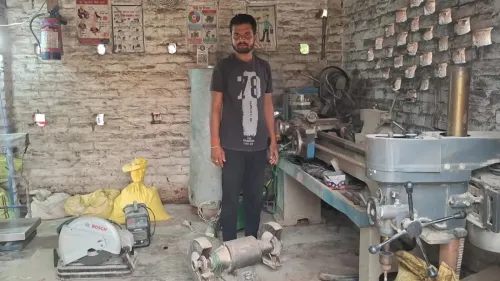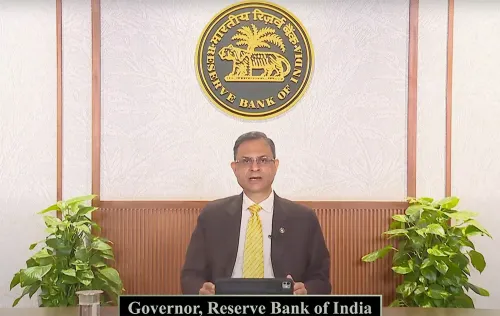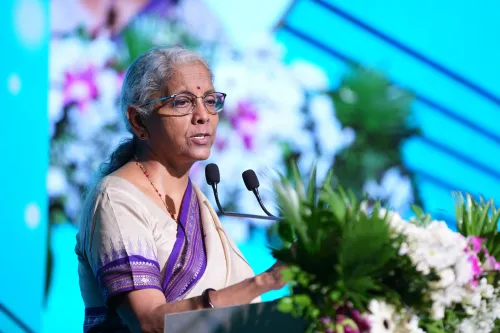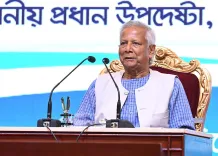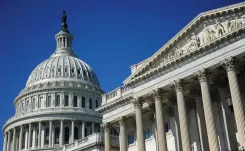Is the Welfare of India’s Farmers a Top Priority for PM Modi?

Synopsis
Key Takeaways
- MSP increase for rabi crops to support farmers.
- Mission on Self-Reliance in Pulses launched to boost production.
- Financial allocation of ₹11,440 crores for pulse production.
- Approximately 2 crore farmers to benefit from the Pulses Mission.
- Focus on self-sufficiency in pulse production.
New Delhi, Oct 1 (NationPress) Prime Minister Narendra Modi announced on Wednesday that ensuring the well-being of India's farmers, who are crucial in shaping a prosperous nation, is a primary focus for his administration.
“In line with this commitment, we have decided to raise the Minimum Support Price (MSP) for rabi crops. This not only fortifies our food security but also provides much-needed support to our farmer community,” the Prime Minister stated in a post on X.
This announcement follows the Cabinet's recent decision to elevate the MSP for rabi crops for the 2026-27 marketing season, ensuring fair prices for farmers' produce.
The largest MSP increase has been set for Safflower at ₹600 per quintal, with Lentil (Masur) seeing an increase of ₹300 per quintal. Other crops like rapeseed and mustard, gram, barley, and wheat will receive hikes of ₹250, ₹225, ₹170, and ₹160 per quintal, respectively.
The Prime Minister emphasized, “We are dedicated to ensuring the well-being of our farmer community throughout the nation. Our government has launched the Mission on Self-Reliance in Pulses, a significant step that will enhance pulse production and reinforce our goal for self-sufficiency.”
The Union Cabinet, led by the Prime Minister, has approved the Mission for Aatmanirbharta in Pulses with a financial allocation of ₹11,440 crores. This landmark initiative, designed to bolster domestic production and achieve self-sufficiency in pulses, will be implemented over a six-year span from 2025-26 to 2030-31.
The Pulses Mission is projected to assist approximately 2 crores farmers through improved seed supply, post-harvest infrastructure, and guaranteed procurement of Tur, Urad, and Masoor pulses at the Minimum Support Price over the next four years, as per an official announcement.
Pulses play a vital role in India’s agricultural systems and dietary habits. As the world’s leading producer and consumer of pulses, India has seen a rise in pulse consumption due to increasing incomes and living standards. However, domestic production has struggled to meet demand, leading to a 15-20% rise in pulse imports.
In another update on X, PM Modi spotlighted a Cabinet decision concerning the widening and upgrading of the Kalibor-Numaligarh section of NH-715 in Assam.
“This is a historic decision for Assam and the Northeast! The Cabinet's decision on enhancing the Kalibor-Numaligarh section of NH-715, which includes an elevated corridor with wildlife-friendly measures in the Kaziranga area, will promote development and ensure animal safety. This will significantly boost tourism in Kaziranga,” the Prime Minister noted.
He also highlighted the Cabinet’s endorsement of Phase-III of the Biomedical Research Career Programme, which “aims to cultivate scientific talent, provide fellowships, collaborative grants, and establish world-class biomedical research capabilities across India.”

